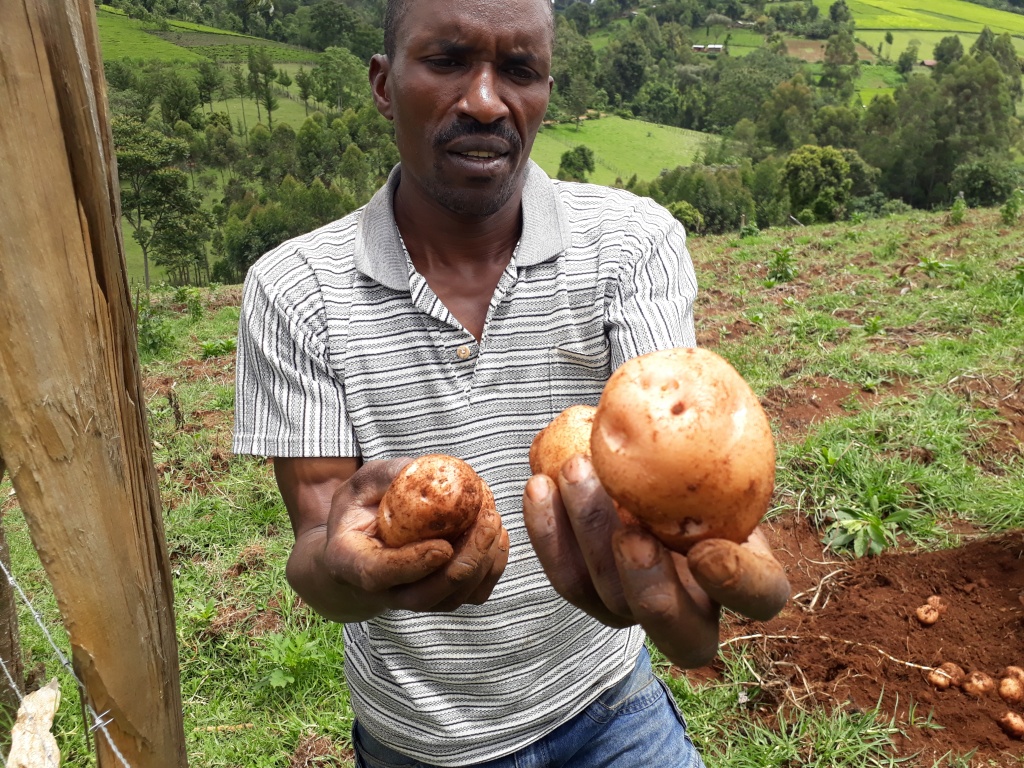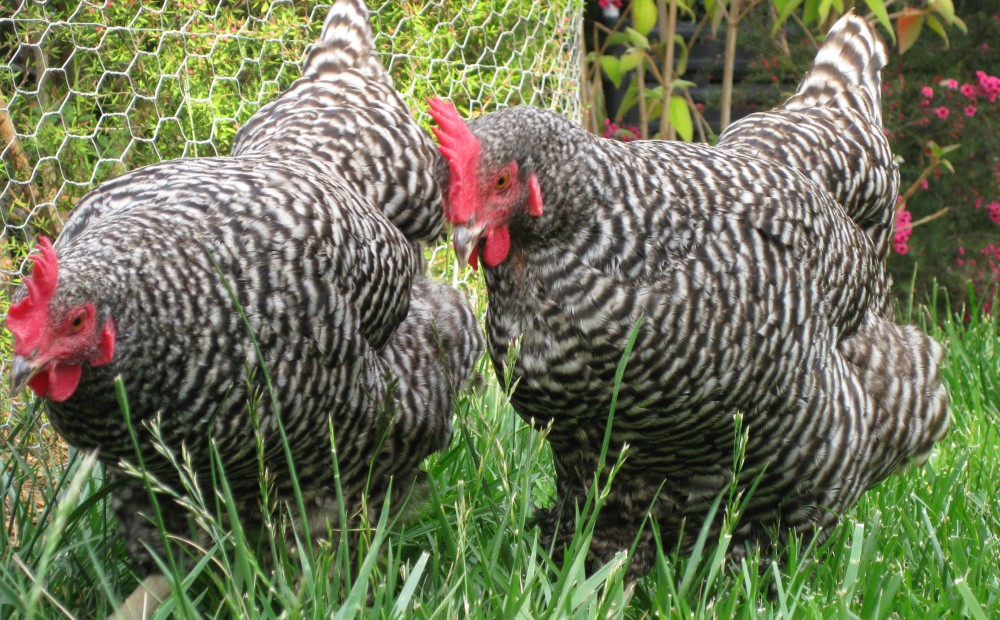
Bomet County potato farmer shows just-harvested potatoes. Smallholder farmers interested in contract farming are encouraged to register with NPCK in groups of five to ten.
More than 5000 potato farmers in Kenya are opting to sign production contracts with food processing companies in order to get quality and certified seeds for free rather than buying them from agrovets .The number of these farmers is expected to rise to 23, 000 by 2020
With these contracts, farmers are able to get top-notch seeds, fertilizer and agronomical services that enable them to produce good and quality potatoes that meet market demand.
RELATED STORY: Some 23,000 potato farmers to access markets
To shield farmers from unscrupulous businessmen who might use the opportunity to deprive them of their full benefits, National Potato Council of Kenya (NPCK) oversees the contract between food processors and the farmers.
“We encourage farmers to register for free with NPCK from where we oversee, review and approve the contract between them and the buyers (food companies) ensuring it is fair for both,” said Wachira Kaguongo, head of NPCK.
NPCK and other actors in the potato production sector introduced East African Potato Consortium in 2016 through which farmers are contracted. The main aim was to increase private investment in agriculture by linking potato farmers with food processors across the country according to Kaguongo.
RELATED STORY: Potato farming transforming lives of thousands of Kenyan smallholder farmers
“Food processing companies prefer potatoes with good floury cooking texture and excellent dry matter content for use on chips and crisps hence farmers need good potato variety not susceptible to diseases and of good breed for planting,” said Peter Kariuki who works in the value chain department at NPCK.
Benefits
Besides the access to certified seeds, fertilizer and agronomical training on potato farming, contracted farmers are also sure of market and steady price in case of market fluctuations.
RELATED STORY:Collective bargaining helps farmers’ cooperative earn 2bn from potato farming
“Contract farming allows farmers to sell potatoes to food companies directly getting their money at the agreed time. Besides, selling to food companies means they earn more money than when selling their produce in the open-air-markets,” said Kariuki.
According to the National Farmers Information Service (NAFIS), the price of a kilogram of potato costs Sh22 in the open-air-markets while food processors by the same measure at Sh45. This is double what farmers can get in the open-air-markets.
Risks/disadvantages
According to Kariuki, smallholder farmers who want to get into contract farming must be in groups of five to 10 in order for NPCK to register them.
RELATED STORY: Potato farmers fly with cluster model
“Food processors need potato supplies in tonnes. This may not be achieved by individual farmers who own small plots of land unless they team up to meet the high demand.”
In case of limited production, farmers are bound to supply all their potatoes to the food companies to reach the demand in the agreement. This leave poor families who rely on the remains or the surplus with nothing to feed on.
The small traders dealing in potatoes such as ‘mama mboga’ are also forced to close down their shops due to lack of supply.
Write comment (0 Comments)

















